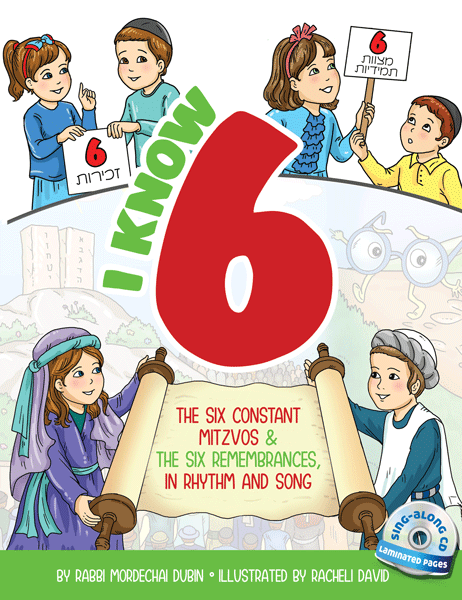 Portraits of Prayer Vol 2
Portraits of Prayer Vol 2
If we had a nickel for every phone call our office received, after the release of Portraits of Prayer Vol. 1, asking when Vol. 2 would be out…well, we would be very well off! There’s just something about the way Rabbi Eliezer Abish, the author, recounts beautiful thoughts and stories relating to the words of the siddur that really propels readers to daven those words with more kavanah.
For example, take the following story, excerpted from the book, in the section of Shema:
וְאָהַבְתָּ אֵת ה’ אֱלֹקֶיךָ
You should love Hashem, your God
For Nachman and Dassi, the news was delivered with such irrevocability and decisiveness that they couldn’t help but to be heartbroken and devastated. After all, this highly skilled doctor’s experimental treatment was their last real hope of ever bearing their own child. Now, with that last prospect dashed, their hopes and dreams for the future seemed to be dashed as well.
Crushed, they made their way to Nachman’s rebbi’s house, just as they had done numerous times over the past seventeen years, to once again pour out their hearts in pain.
Their twenty years of marriage consisted primarily of deep, heartfelt, and tearful prayers pleading and begging Hashem to grant them a child. They already swallowed their pride and accepted the shame years before as they enlisted their family and friends to join them in davening for children. They already traveled the world to receive brachos from tzaddikim and to daven by mekomos hakedoshim. They spent all their savings on treatments, they borrowed money for treatments, and they turned to wonderful organizations that graciously financed even more treatments.
As physically and emotionally painful as the treatments were, they were both focused on their goal and were accepting of everything necessary to attain it.
But now, after hearing the specialist’s devastating prognosis and seeing their last hope dissipate into thin air, they were completely broken. Their rebbi, feeling their pain as his own, cried along with them, his tears mingling with theirs.
Then, Dassi, regaining her composure, asked, “Maybe it’s time we adopt a baby? Maybe we should just accept the fact that we’ll never have our own child, although we have so much love to give. Perhaps our next best option would be to adopt a baby that we can raise and shower with love?” They discussed the idea and concluded that that is what they would do. Their rebbi suggested, for various reasons, that they adopt a Jewish baby. The couple reached out to adoption agencies in Eretz Yisrael, filled out numerous questionnaires, and had letters of references written on their behalf. They were then told to wait.
“Wait? For how long?” they asked.
“There’s no set time. Just wait. These things tend to take a while. We’ll get in touch with you when everything is ready.”
It was a very tense seventeen weeks, but then the phone call finally came. A little baby girl was waiting for them! Nachman and Dassi were instructed to come to Eretz Yisrael in one week’s time to complete the adoption process. That week was a joyous one and it flew by quickly. They went shopping and furnished the bedroom beautifully for their new baby daughter!
Upon their arrival in Eretz Yisrael, after checking into their hotel and refreshing themselves, they proceeded directly to the adoption agency to take care of all the paperwork. After meeting with a social worker, they were handed a rather thick stack of forms to sign. They dutifully worked their way through the mound, signing paper after paper. They finally affixed the final signature and passed the pile of papers to the social worker.
“Okay,” she smiled, “just one more document for each of you to sign and then we’re done!” Simply enough, the paper had but one question with four blank lines for answers. “Please list the four things you love most in the world.”
While Dassi took her time thinking about what to write, it didn’t take long at all for Nachman to respond. He listed the following: 1) Hashem 2) Dassi 3) Learning Torah 4) Playing basketball.
The social worker then told him to turn the paper over, sign it, and prepare to meet his new baby daughter! Nachman quickly flipped the paper over. There was only one sentence on the second side of the page, and a line at the bottom for his signature. He blanched as he read the sentence. “With my signature, I pledge to love my new adopted child even more than the four items I listed on the other side of this page.” Nachman’s hand began quivering as he put the pen down on the table. Alarmed, Dassi blurted, “What’s wrong? What’s going on? Why aren’t you signing?”
“I can’t sign this paper. I just can’t sign it.”
“What do you mean? Why not? Why can’t you sign it?” Dassi asked again as she grabbed his paper and read what he had written. Her eyes welled with tears as she sat in wordless agreement. The social worker took a look at the paper and quickly grasped the situation.
“What’s the big deal? Just sign the paper, and we will go introduce you to your new baby daughter!”
“I can’t sign a document pledging to have a greater love for someone or something than my love for Hashem.”
“Listen here,” the exasperated social worker said, “do you think people actually read what you write and then check up on you? Once you sign these papers they are going to be filed away and no one will ever see them. It doesn’t really matter what you write! Don’t be silly,” she urged. “Just sign and be done with it. It’s just a formality, it doesn’t mean anything.”
“I can’t. I can’t sign such a paper,” Nachman responded resolutely. “My heart is breaking, but I can’t sign this paper!”
“You’re crazy! Don’t let this opportunity slip by. Are you aware that at this point, if you refuse to sign, you will have a very difficult time adopting a child from any adoption agency here in Israel, ever? Don’t be a fool, just sign the form so we can go right now to meet your beautiful new baby!”
Nachman and Dassi looked at each other with unspoken resolve. He would not sign. Together, they slowly stood up and, to the utter shock of the social worker, made their way out of the office. They decided not to stay in Eretz Yisrael for the few days they had originally planned, but to return home immediately instead. They took a taxi back to their hotel, re-packed their bags, and headed back to the airport. On the way, they told the driver to make a stop at Kever Rochel for a few minutes. Once again, with broken hearts and dashed dreams, they poured out their hearts to Hashem. Although they were in such a muddle of pain that they couldn’t even properly compose their thoughts, they shed copious tears.
After landing back in New York, their first stop was at Nachman’s rebbi’s house. “Rebbi, did I do the right thing? Did I mess up? Should I have signed? What should I have done?” asked Nachman anxiously.
Very moved after hearing what had just taken place, the rebbi was at a loss as to how to respond. After a few moments of emotional silence, he replied, “I don’t know if I would have the ability or gumption to respond in the same fashion as you did if I would find myself facing a similar set of circumstances. However, there is one thing that I am absolutely certain of. No one ever, ever, loses out when they act out of genuine love for Hashem.[1] You and your wife had so much riding on this signature and you both let it all go due to your love of Hashem. I wouldn’t be at all surprised if Hashem will respond to your remarkable act of love toward Him with His own remarkable act of love toward you. Let us renew our davening and beseech Hashem for His salvation.”
Eleven months later, there wasn’t a dry eye in the room as Nachman and Dassi, now the proud parents of a brand-new baby boy, listened as their rebbi fondly recounted the above incident at the seudas bris of their very own newborn son!
See what we mean?
Portraits of Prayer Vol. 2 goes from Birchos Krias Shema until after Aleinu. It is the perfect book to buy as a gift for a friend or family member, or for yourself. Chock-full of stories and thought-provoking insights, like Vol. 1, this book too will propel its readers to higher heights, as it enhances their everyday davening in a very real way.
Click here to purchase online.
 There’s something about a trilogy that gives avid readers a thrill.
There’s something about a trilogy that gives avid readers a thrill.


 Posted by anamericanjew
Posted by anamericanjew 


 Flashes of Torah
Flashes of Torah Portraits of Prayer Vol 2
Portraits of Prayer Vol 2 The Ever-Clever Mrs. Make-a-Mentsch
The Ever-Clever Mrs. Make-a-Mentsch
 I Know 6
I Know 6
